Mental Health and Inner Peace in Islam: Healing Through Faith and Reflection
In today’s world, with mental health issues at unprecedented levels, millions struggle with anxiety, despair, and feelings of emptiness. While modern psychology may offer various solutions, Islam presents a spiritual path, practised for over fourteen centuries, towards mental wellness and inner peace. This path is distinctive in that it integrates faith, contemplation, and awareness of God into the healing process, offering a holistic and complete methodology for the tranquillity of mind and spiritual well-being.
The Islamic Foundation of Mental Wellness
A key distinction between Islam’s perspective on mental health and secular models lies in its recognition of the human being as a composite reality — spiritual, emotional, and psychological. The Qur’ān and the Sunnah provide abundant guidance on the human condition. Islam teaches that true healing is not merely the reduction of symptoms but the restoration of the soul’s relationship with its Creator. Distress often arises from spiritual disconnection; therefore, healing must address both the mind and the soul.
The heart — qalb (قلب) in Arabic — holds a special prominence in Islam. Unlike many modern secular perspectives that place consciousness solely in the brain, Islam regards the heart as the spiritual centre of personal experience. The Prophet Muḥammad ﷺ once pointed to his chest and said: **“Taqwā (God-consciousness) is here.”**¹ This underscores the heart’s role as the seat of spiritual awareness, purity, and divine guidance.
The Qur’ān repeatedly emphasises the purification of the heart as essential to well-being. Allāh (subḥānahu wa-taʿālā) says:
“And whoever believes in Allāh — He will guide his heart.” (Qur’ān 64:11)
Belief in Allāh is thus directly linked to psychological clarity and emotional calm. Islam’s conception of fiṭrah (primordial nature) highlights that humans are, by their very essence, inclined towards spirituality. Mental health difficulties often emerge when people drift away from this natural state.
Mindfulness Through Divine Consciousness
Islamic mindfulness, particularly murāqabah, offers a deeper path to the health of the soul than modern notions of mindfulness. In murāqabah, every moment is lived with the awareness of Allāh’s acts and presence. Ibn al-Qayyim, in his influential works, describes murāqabah as:
“The servant’s continuous awareness of being ever-present with the Truth in both his outward and inward states.”
This state nurtures emotional regulation, reduces anxiety, and increases spiritual calm.
Unlike secular mindfulness, which focuses on self-observation, Islamic mindfulness centres on Divine consciousness. Through murāqabah, believers cultivate the awareness that Allāh sees, hears, and knows all — both what is hidden within and what is manifest outwardly. Far from causing anxiety or fear, this brings humility, gratitude, and serenity, anchored in the recognition that all things are encompassed by the infinite mercy and wisdom of Allāh. The Qur’ān proclaims:
“Indeed, Allāh is ever, over you, an Observer.” (Qur’ān 4:1)
Shaykh ʿAbd al-Qādir al-Jīlānī outlined four essential elements of murāqabah that strengthen mental wellness:
- Knowledge of Allāh’s constant presence.
- Awareness of Shayṭān’s deceptions.
- Recognition of one’s spiritual weaknesses and desires.
- Realisation that every action in life holds spiritual significance.
This framework not only deepens spiritual life but also provides practical support for balancing psychological insight with spiritual health.
The Therapeutic Power of Dhikr and Reflection
The practice of dhikr — the remembrance of Allāh — is among the most effective tools for inner well-being in Islam. The Qur’ān declares:
“Indeed, in the remembrance of Allāh do hearts find rest.” (Qur’ān 13:28)
This verse directly links divine remembrance to peace of mind, showing that the heart attains comfort, rest, and tranquillity through constant remembrance of Allāh.
With regular dhikr, habitual thought patterns begin to shift. Anxious ruminations fade, replaced by thoughts of divine remembrance. By engaging in dhikr, believers redirect their focus from worldly distractions to Allāh’s attributes. This reduces stress, fosters emotional balance, and instils calmness. The rhythmic nature of dhikr also produces a meditative state, soothing the nervous system and deepening the believer’s spiritual connection.
Ṣalāh as Psychological Therapy
The five daily prayers — ṣalāh — function as regular therapeutic sessions that fulfil both spiritual and psychological needs. Each prayer provides an opportunity to withdraw from worldly concerns, reconnect with Allāh, and experience a mental reset. The combination of physical movements, recitation, and spiritual concentration creates a holistic mind–body healing process, which modern psychology recognises as highly effective for mental well-being.
In ṣalāh, believers engage in several positive psychological processes at once. Wuḍūʾ (ritual ablution) not only purifies the body but also prepares the mind for devotion. The structured actions and recitations provide a predictable routine that cultivates stability and comfort, particularly for those struggling with anxiety or depression. The act of prostration (sujūd) symbolises surrender to something greater than oneself, reducing stress and promoting emotional recovery.
The Prophet Muḥammad ﷺ described ṣalāh as “the coolness of my eyes.” The Arabic expression qurrat ʿayn conveys profound comfort, satisfaction, and relief. Moreover, the communal aspect of prayer — especially the Friday congregational ṣalāh — reinforces the human need for social connection and mutual support, offering believers a shared spiritual environment that strengthens resilience and hope.
Prophetic Wisdom for Mental Health
The life of the Prophet Muḥammad ﷺ reflects profound mindfulness and emotional intelligence, offering a living model of mental well-being. His interactions, decision-making, and spiritual practices provide guidance on living with awareness and balance. Historical accounts note his attentiveness — turning his whole body toward the person addressing him, eating slowly with gratitude, and giving full presence in conversation.
The Prophet’s teachings also provide clear strategies for handling psychological challenges. Gratitude, patience, and reliance on Allāh’s wisdom serve as practical tools to transform difficult experiences into opportunities for growth. ʿĀʾishah (raḍiya Allāhu ʿanhā) reported that whenever the Prophet ﷺ faced distress, he would immediately turn to prayer. This shows how spiritual connection can bring rapid comfort and demonstrates the integration of emotional support with spiritual guidance in the Prophetic model.
The Prophetic example offers practical steps for daily mindfulness and resilience:
- Attentive presence: giving full attention in interactions.
- Gratitude in small acts: eating slowly, recognising blessings.
- Turning to prayer in hardship: making ṣalāh a source of healing.
- Patience and trust: reframing challenges through tawakkul (reliance on Allāh).
These habits, simple yet profound, help cultivate inner peace and strengthen psychological resilience when applied consistently.
Conclusion
In Islam, mental health and inner peace are not confined to psychotherapy techniques but are embraced as part of a holistic lifestyle. This approach recognises the human need for spiritual transcendence, social connection, and meaningful existence. Psychological wellness is not only about managing symptoms; it is also about spiritual growth and strengthening the bond with Allāh (subḥānahu wa-taʿālā).
Through murāqabah, dhikr, contemplative worship, and reflective study of the Qur’ān, Muslims engage in a healing tradition that has nurtured mental and spiritual well-being for centuries. These practices are accessible to all, regardless of individual circumstances, offering tools for both resilience and inner transformation.
By adhering to these divinely guided practices, believers experience a natural convergence of spiritual development and psychological health. This generates a healing cycle that addresses both the inner soul and the outward self. In a world where contemporary therapies often overlook deeper spiritual needs, Islam offers a comprehensive approach that honours both scientific understanding and divine wisdom.
For millions seeking genuine transformation and lasting tranquillity, this integrated path provides hope. In Islam, the journey to mental health is ultimately a journey to Allāh. Spiritual serenity nurtures psychological well-being, and healing at the heart’s core inevitably brings healing to the mind.
About the author:
Muhammad Hadi is a student at Shihab Thangal Islamic Academy, which is connected to Dār al-Hudā Islamic University. He is presently working toward an external Bachelor of Political Science degree in addition to an Islamic degree in Civilizational Studies. His areas of interest are history, sociology, and psychology, with an emphasis on incorporating Islamic viewpoints into current socio-psychological discussions. His research and writings seek to investigate the applicability of traditional Islamic scholarship to contemporary intellectual and social issues.
References
- Reported in Ṣaḥīḥ Muslim, Book of Faith, Hadith 45.
- Ibn al-Qayyim, Madārij al-Sālikīn, Vol. 2, p. 456.
- ʿAbd al-Qādir al-Jīlānī, Al-Fatḥ al-Rabbānī, Discourse 23.
- Reported by Aḥmad in his Musnad, Hadith 3712.
- Reported by al-Nasā'ī in Sunan al-Nasā'ī, Book of ʿIshrah, Hadith 3940.
- Reported in Ṣaḥīḥ al-Bukhārī, Book of Prayer, Hadith 1154.
- Reported by Abū Dāwūd in his Sunan, Book of Food, Hadith 3767.
Disclaimer
The views expressed in this article are the author’s own and do not necessarily mirror Islamonweb’s editorial stance.

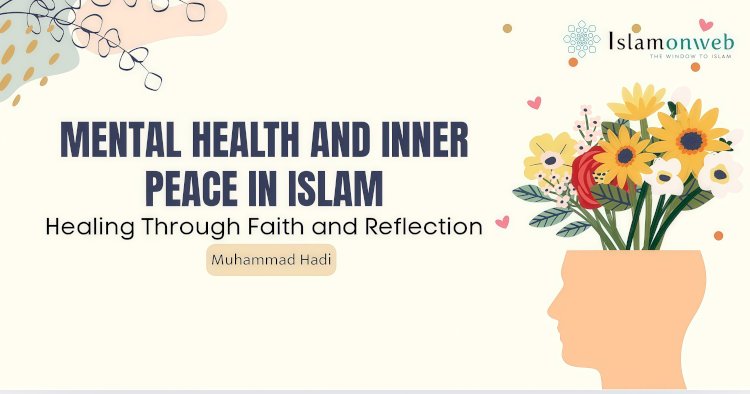



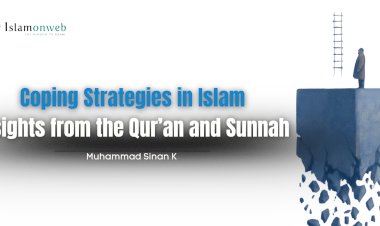
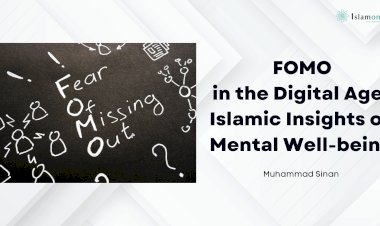

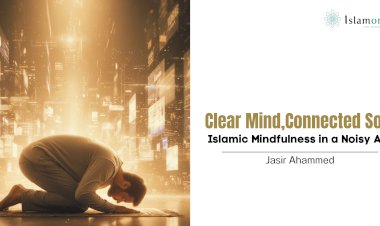
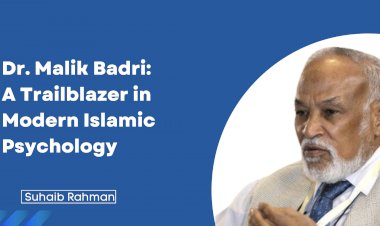














Leave A Comment